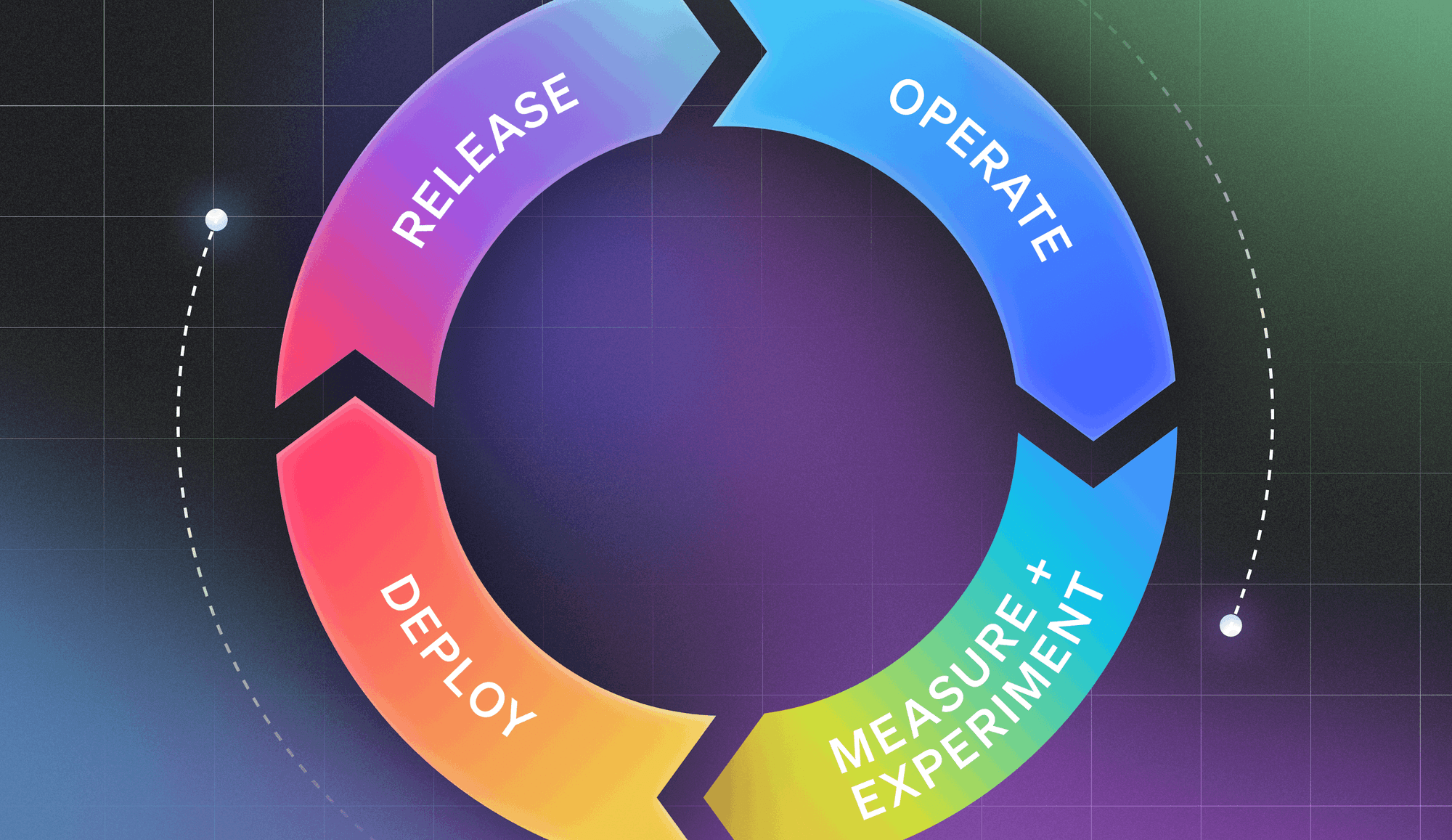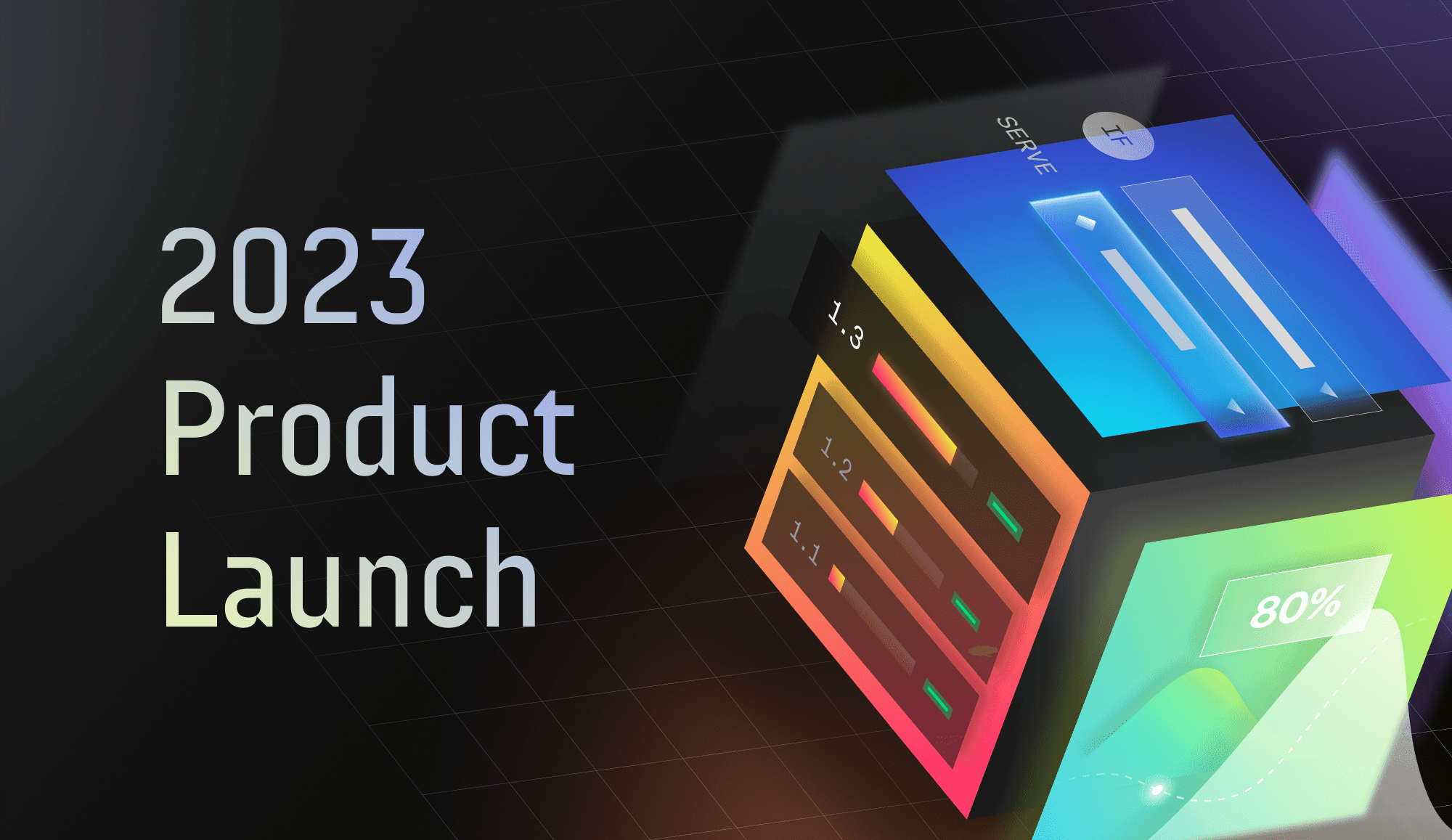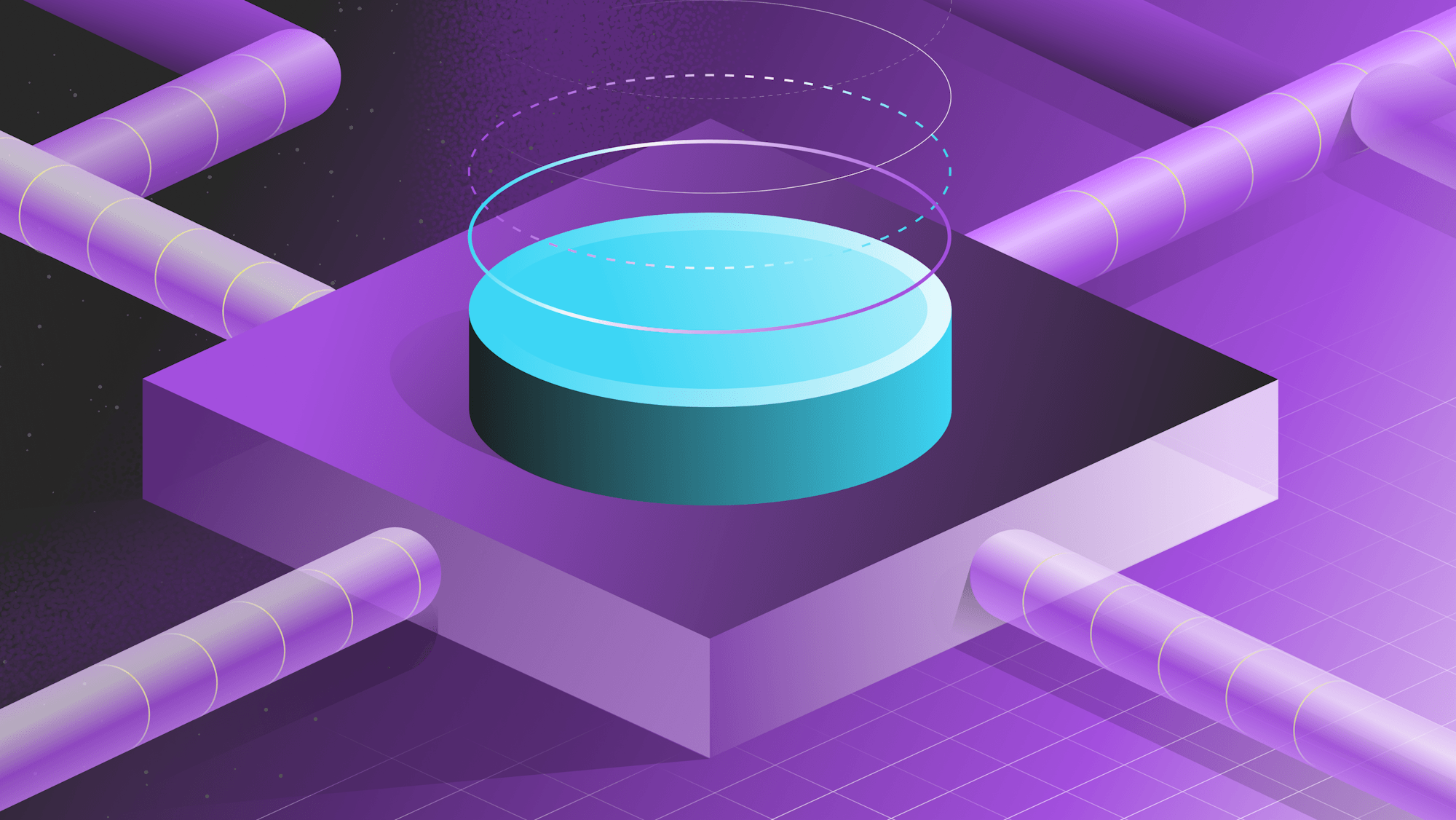On May 7, Dawn Parzych, Developer Advocate at LaunchDarkly, spoke at our Test in Production Meetup on Twitch.
In this talk, Dawn shared her experiences adapting to parenting, working, and schooling, and how she incorporates DevOps principles into her parenting style.
Watch Dawn's full talk.
FULL TRANSCRIPT:
Yoz Grahame: Test in Production for May the 7th, 2020. My name is Yoz Grahame, I'm a LaunchDarkly Developer Advocate. And our guest today is another LaunchDarkly Developer Advocate, my colleague Dawn Parzych. How are you doing today, Dawn?
Dawn Parzych: I'm doing great. How are you Yoz?
Yoz Grahame: All right, thank you. You are going to talk to us about DevOps parenting.
Dawn Parzych: Yes.
Yoz Grahame: And I am looking forward to this, speaking as both a parent and a DevOps person. As I tweeted just now, I would love to know how to keep a redundant array of inexpensive children, even just the inexpensive part with kids, would be fantastic [crosstalk 00:00:48].
Dawn Parzych: Yeah, there's something about kids that are inexpensive.
Yoz Grahame: But it's interesting and I know that there are all kinds of techniques and ideas that we learn from DevOps, of how to deal with bizarre semi-controllable chaos that may explode at any moment. And so learning how to apply those lessons to children, parenting, is I think a great idea. These are things that you've been using day to day?
Dawn Parzych: Sometimes day to day, sometimes in the heat of the moment when we're running an experiment, we'll be like, "Oh, we're just going to try this thing."
Yoz Grahame: Brilliant. So you're going to be talking now for about 15 minutes or so. Anybody watching, please we'll be taking questions afterwards from the stream chat, so please post your questions. And Dawn and I will be discussing them and other things as well. In the meantime, please take it away, Dawn.
Dawn Parzych: Great, thanks Yoz. I originally gave a talk on DevOps parenting, one of the first talks I ever gave in 2017, and I thought it would be a good time to revisit that idea of DevOps parenting, especially given the situation. Where we're all, as parents trying to balance work and homeschooling and parenting and everything else, all at the same time. Now my journey into parenthood was a little different. I became a parent in 2015 when we adopted our son. This is one of my all-time favorite photos of our family. It was taken the day his adoption was finalized.
And you might be able to tell from this picture that he's a little bit of a rule breaker. When he's been asked to raise his right hand to be sworn in, he raises his left hand, just kind of sets the scene for what we had coming for years to come. But from a parent perspective right now, as I said, we're trying to balance work and parenting and self-care and all this other stuff. And when you think about testing and production, parenting is the ultimate testing and production situation. There is no staging environment, every change, every mistake, all of that's happening in production.
Basically we're just making it up as we all go along. And I was attending my first DevOpsDays, about the same time that we were finalizing adoption and I'm realizing like, so many of the principles were like, "Wait a minute, I can apply this to my parenting." Sometimes it works and sometimes it doesn't. The three ways for example, the three ways are flow, feedback and continuous improvement and learning. Flow refers to how work and communication happens from higher ups down to the workers.
Feedback is then delivered back upstream in short amplified cycles. That feedback is incorporated, and changes are made as we continue to learn. I found that this in no way epitomizes the parent-child relationship. We'll tell our son what to do, he'll complain, he amplifies his complaints, but he still has to do them. Or what happens more often with my rule breaker of a child, is he skips the feedback phase and he goes straight into making adjustments without our knowledge or consent.
He's gotten into weeding and gardening, which is a great skill to have. But the other day I had him out and I'm like, "Okay, go weed the section of the yard." Well, he then decided that part of weeding was digging up bricks that were planted in the area, because he couldn't get the weeds. So he dug up all these bricks, went and got a dolly that was in the garage to move the bricks to another location. So that feedback loop was not in here in any way, shape or form.
He then had to go and move all of the bricks back because where he put them was not where they needed to be. So it ended up creating slightly more work for him. This concept really struck me when I first heard about it at a DevOpsDays of a Kaikaku, which is a radical or disruptive change. Sometimes change is expected, but sometimes it's a total surprise. Now with parenting, a lot of stuff can be a surprise. And with the current pandemic, we were basically thrown into this situation with zero notice.
Overnight I went from being the only person that was working from home to now my spouse, and my child is here all day, every day. This is highly disruptive. We've all had to learn how to adjust to this pretty quickly. We created a schedule that balanced work, schooling, and sometimes if we're lucky, a little bit of fun and relaxation. What we decided to do was my spouse gets up in the morning, takes care of our son, and he starts work at 9:45 I start work earlier, I start work at around 8:00 and about 10 o'clock I take a two-hour break to take care of our kid.
Make sure he's getting the schoolwork done, teaching him, making sure he's not moving bricks in the backyard and that worked. But while that schedule we originally put into place was good, it wouldn't be DevOps if we didn't look to continuously improve things. And this is where the concept of Kaizen comes in. Where you can get big results when you measure things, work as a team and make small changes over time. So we're definitely working as a team. We're constantly communicating to what's working and what's not working.
And so we put the schedule in place and about a month, six weeks ago now, my husband's company offered two weeks of paid parental leave for parents to help them navigate school closures and daycare closures. They can use it however they want. So we decided that even though things were working, neither of us felt very productive or successful at work or at home. So well maybe going down to four days of work week would help. So my husband takes Thursdays off. I've been taking Fridays off for the last couple of weeks, just to see how things are going.
And I'll tell you that Thursdays that I've had off, I have felt way more productive. I get a 100% focus at work, I've been writing. I've been able to write two articles a day, I've been able to build presentations in a single day. It's been highly unusual. But getting that day is making all the difference. So we'll see how long we can continue and what other changes we may make along the way.
I am a big planner. When I learned that schools were closing in March, I was one of those parents that created a schedule and stuck it on the refrigerator for our son. Partly that was because he asked for it. He needs structure and knowing what's happening and where he needs to be in what he needs to be doing. So that worked really well for us, so be able to come up with that plan. I was also added to a bunch of online groups where everyone's sharing these tips and tricks and ideas of resources that are out there.
So I created an air table of projects and things to do, because when schools closed in March, they were supposed to open in April, but we were pretty sure that he wasn't going back to school for the rest of the year. And sure enough he's not, he'll be home through the rest of the year. Now I'm also preparing for summer camps to be closing. So I've created a list of online classes he can take. Coding classes, art, graphic design projects, things that can hopefully keep him a little more engaged for a couple of hours at a time over the summer. But we're having to adjust rapidly to changes with what's coming down the road.
Community is such an important part of DevOps. I also find it's an important part of parenting as well. When the social distancing orders were first announced for Washington, we talked with two neighborhood families and decided to form our own little community pod. If one of us is going to the store, we check to see if anybody else needs anything, so that we're reducing the number of trips that people are making out. We're helping with the parenting. We each are taking kids for a couple of hours a day so the parents can get work done.
I've also been doing puzzle swaps with friends, because people are way more interested in puzzles. And it's something that I enjoy doing with my son, so we can't buy them, we can't go to the store, so we're swapping with friends in our community. My sister's been sending books that her son no longer reads, so that we don't have to spend hundreds and hundreds of dollars on new books for him. I also started cross-stitching again during all of this and my son decided he's very interested and he wants to learn as well.
Dawn Parzych: Can't find cross-stitch kits online because everybody's bought them out, because everyone's looking for things to do with their kids. I made a comment online and a friend of mine said, "I've been buying kits at thrift shops. I have a bunch of beginner kits, I'll mail them to you." So being able to reach out to community members to ask for help, to do simple things like swapping stories, it's been incredibly helpful for us.
Another big piece of DevOps is sharing, and I look at this from a parenting perspective of, I'm trying to share with my son, but I'm also trying to share with other parents as well. So when all of this started, I was looking for ways to include my son in my work. Because a coworker suggested "Well, maybe you can get more work done if he's working with you." What I first thought was, "That's not possible. I give talks, I write. How am I going to include him in this?" And I slowly realized, "Wait, there's certain things he can do."
We decided to do a Twitter takeover where my son took over my Twitter account for an hour. He had his own hashtag for it. He got very engaged with the community members that he was talking to. It was an interesting learning experience, I think for both of us. We were able to talk about online etiquette, online safety and a side effect of this was I actually inspired other people to have their kids take over their Twitter accounts as well. I've also learned that he is very creative and likes being on film and camera.
I recorded a couple of videos for A Minute on the Mic Podcast, and he participates in them occasionally with me. He was very interested in being here today, but he has a class meeting that is taking place now. So unfortunately, he is not able to be here, otherwise he would be jumping up and down behind me. But sharing goes beyond things I can share with my son. I'm also helping other parents. I share my parenting misadventures on Twitter. I share in Slack communities that I'm a part of. I write articles about this. I give talks and share information like this one here.
It's not always easy to share, especially when you feel like you've made a mistake or done something wrong and people are so quick to judge. But if I can help people feel that they're not alone, then I'm willing to share and put myself out there. This hasn't been the easiest adjustment for all of us to make, but in a lot of ways I'm surprised that it hasn't been harder. I think I was expecting the worst. I don't even know what I was expecting, but it hasn't been as hard as I thought it would be.
And with all of this DevOps principles, if you take one thing away from this talk today, let it be that you're not harming your child if the only thing you're doing is making sure they are fed and clothed on a daily basis. If you're not doing creative art projects or camping in the backyard or virtual tours of Disney or baking extravaganzas it's okay. Just like with DevOps, there's no one size fits all or best practices. It doesn't apply to parenting as well. We're all just doing the best we can and we don't need to see this as a competition. And who has the most Twitter worthy, Instagram worthy parenting style. Thank you.
Yoz Grahame: Brilliant. Oh, thank you so much Dawn. That's great. And I think that ending point is one that is really worth reiterating through all of this. Because there's parts of this where you're talking and you're saying how well you've set certain things up, which is generally sounds fantastic. And I'm the kind of parent where I'm going, "God, I wish I had that kind of energy. I must be terrible. I must be failing." No, we're all doing the best we can in this situation. And in this kind of situation, as you say, you're keeping them fed and clothed and relatively clean, and that's already winning frankly in this kind of situation.
It can be also as you said, off-putting if you see your friends Instagram's or whatever, and the trouble is you compare. I think one of the wisest things I once heard is don't compare your insides to everybody else's outsides. There's the whole swan analogy of looking graceful above the surface and paddling like hell underneath. Plus people only put on Instagram the stuff that they're proud of. Sorry, excuse me, rambling there. But that was fantastic and there're so many great points in there.
I think to start with in terms of questions... By the way, if you are watching, to our audience, please do post questions on the chat. We welcome any questions about DevOps parenting and the combination thereof. So one of the typical questions we ask when having a speaker on is, this is all very nice, but how do I get started? Right? I think one of the things that really applies for DevOps and parenting here, is that in both you tend to be in a situation where, by the time you need the advice you're already somewhat snowed under. You don't have much spare time or energy. So how would you advise getting started with these kinds of things when it's hard to mask that energy?
Dawn Parzych: As with even a tech project starting small, figuring out what's one thing that I can do today or within the next five minutes? Instead of trying to be like, "Oh, I'm going to implement all of these processes." Like what is the one thing I could do now? And for me, one of the first things I did when schools closed it was, I had to put a schedule together. And there's a lot of information overload. There's all this stuff. Like, "Oh, you should be doing this, you should be doing this." But for me, it's like I need a schedule.
I know that without that it would be a little more chaotic and my son does not do well in chaotic environments. So that was what I decided was like if I do one thing, I'm going to put that schedule on. For other people it might be something different. But just figure out that one little thing and start small. Boiling the ocean is bad, bad, bad.
Yoz Grahame: Oh yeah, yeah, yeah. By boiling the ocean we mean, that trying to reinvent everything from the ground up in one go.
Dawn Parzych: Right.
Yoz Grahame: Because you can't, and I think the starting small thing is great. Sometimes, if you could get a blank piece of paper and stick it to the fridge and write schedule on the top, that's a great start. Right?
Dawn Parzych: Yeah.
Yoz Grahame: It means you're going to put the schedule there as it evolves.
Dawn Parzych: Yeah. And just because it's there doesn't mean it can't be changed.
Yoz Grahame: Right.
Dawn Parzych: Right. It doesn't mean like, "Oh, I could only do this here." We realize that one thing that we have on the schedule is independent reading. We're going to read for 30 minutes and we have that set up after lunch or wherever it was. But after lunch is when I go back to work and my son wanted me to read with him. So I'm like, "Oh, okay." So during the two-hour block, I'll sit down and read with him and scratch his back and we get some cuddle time together, because we have the ability to adjust and change, that's natural. It's not carved in stone.
Yoz Grahame: That's great. And kids are picking up that these are abnormal times, right? It's not normally like this for a reason and it's difficult for everybody.
Dawn Parzych: Right. I think the hardest thing is having him ask, "When are things going back to normal?" The governor said, May 4th. It's like it's not going back to normal. Normal is going to look different.
Yoz Grahame: Right. And the hard thing as well is, it's a situation where you say, "Look, the grownups don't have the answers on this, all the answers on this one. We've got a few of the answers, but we are also stuck in a place of not knowing." Which can be tough, but I think showing them as you're demonstrating, just showing some way to lead, little bit by bit here and there, to make things better is enormously helpful.
So there's obviously the thing that it can be incredibly difficult and there is danger here of burning out. Right? So what do you as a parent... When you get to those points, which are very easily reachable these days where you feel you can't handle it right now. What do you do in those situations?
Dawn Parzych: I've been taking very long walks. I start off the day between a two to three-mile walk. It's the one hour a day that I have to myself. Well, the dog is with me, but yeah, he's not as demanding of my time when we're out on a walk. So we do that a lot. We've set up a couple of date nights, so that we can have some adult interaction without the child, and instead of going out we're staying in. A few weeks ago we were supposed to have gone to see a play that night and I was a little upset that, "Oh, we haven't done that." But oh, well we could watch Parasite.
Not really a kid friendly movie, but I also knew that I can't watch it after he goes to bed, because I'm too tired to watch a subtitle movie at that point in time. So we sent him into the basement. Said, "You can watch and do whatever you want in the basement, play with the Xbox, watch a movie. We're having date night up here."
Yoz Grahame: Right.
Dawn Parzych: So finding things like that, where we can have some solitude, some sense of normalcy is helping to avoid the burnout in a lot of respects.
Yoz Grahame: Yeah. I mean, my experience with kids it tends to be, it's that time when you're asking them to leave you alone for a while, that they come up with them most questions.
Dawn Parzych: Yes.
Yoz Grahame: But you just got to, I suppose, be persistent with them and get them used to that idea.
Dawn Parzych: Mm-hmm (affirmative).
Yoz Grahame: It's going to be rough the first couple of times.
Dawn Parzych: Oh yeah. It's like when I want the solitude, like you said that's when they're like, "Oh, we need all this stuff." But if I don't need that solitude, it's like you're able to quietly draw or play with your pearly beads or read. Why could you not do this when I ask you to?
Yoz Grahame: Right. And I mean, I think it's understandable given the situations where we find ourselves suddenly left in charge and knowing that we're left in charge. Knowing that we're suddenly alone is what brings up, gets our minds working along the what if? What if? Then suddenly I'm a whole lot more nervous than I was before.
Dawn Parzych: Yes. And for a kid like mine, he has anxiety and he wants to be left alone. He wants that ability to stay home alone. But when he gets it, his mind starts racing and it's... That's a [inaudible 00:25:03]. We've been trying to be like, "Okay, after dinner we'll go for a walk." And we told him like, "He doesn't have to come with us. He can stay home because he was getting very anxious being outside." He's like, "Well, the virus is out here, it's not safe." It's like, "Well fine, then you can stay in the house and dad and I will go for a walk." He doesn't want to stay in the house. He's like, "Nope, I'll go with you."
Yoz Grahame: Right.
Dawn Parzych: It's too much to be home alone and wondering, what if we don't come home? Yeah. I'm going to come home from my walk. Pretty sure.
Yoz Grahame: Yeah. Yeah, exactly. I suppose, it's understandable in times of uncertainty that kids get uncertain about a whole load of other things as well. Knowing that you will come back after a walk. And so showing them that there are things that you are still sure of is very helpful. Similarly, for those of us who have a partner with our kids, how it's useful to trade off activities and schedule it. Is that part of the work that you have? Is working out who's looking after which kid, when? In your case, one kid, but things like that.
Dawn Parzych: Yeah. We've split it up fairly well. My husband takes the morning routine, making sure he's had breakfast and is dressed and all of that. I generally do the bedtime routine. We'll read bedtime, scratch his back, have conversations, whatever. But sometimes I just have to tap out and be like, "I can't tonight." And last night was one of those nights I was like, "I'm done. I can't." And so my husband took over the bedtime routine. So we have set things, but again, you have to be willing to shift. And have that feedback of, I don't have the capacity to do this tonight for whatever reason that is, and be able to tap out and have somebody else come in.
Yoz Grahame: Yeah, yeah, yeah, yeah. Completely. So I'm wondering coming back to the theme of DevOps and parenting, some of the lessons that you've learned, and I'm trying to remember, because there were a couple of... As ever there was a couple of important Japanese words. I've completely forgotten which one it was now. Before Kaizen you had?
Dawn Parzych: The Kaikaku?
Yoz Grahame: Yes.
Dawn Parzych: Disruptive change.
Yoz Grahame: Right. Could you explain a little more about that again? It was basically A bit unexpected or surprising changes and being able to handle them.
Dawn Parzych: Right? Yeah, it's a matter of, are you doing like a small incremental change or a big bang. You're changing everything all at once. And that's what that Kaikaku is. And as much as we want to do small changes, sometimes we can't.
Yoz Grahame: Right.
Dawn Parzych: With our son, we were struggling finding the right school for him and the right educational environment, and we had to abruptly pull him out of a school a couple of years ago mid-school year or not even mid-school year, it was like six weeks into the school year. He was abruptly pulled out and moved into another school. That was a huge change, did not go incredibly smoothly, but in the long-term it was the right move and we know that now, but getting over that hurdle we've made this massive change. It's been highly disruptive. It took some time, but we're very happy with the school he's at now, which is the one he moved into. So that's good.
Yoz Grahame: That's great. And it's interesting trying to think about the ways in which we would do that in DevOps. And the similarities between things like occasionally in DevOps, there are times you try and do gradual migrations for everything. But sometimes you just have to do a hard cut over, and the best you can do is loads of preparation beforehand and then loads of checking and double checking afterwards, and being available, watching out for problems afterwards. It's... Sorry, you said something?
Dawn Parzych: I was saying, it's monitoring. So I've made this big change in like, what do we have to monitor? How are behaviors shifting and whether you're talking about the behavior of an application and infrastructure, paced or a human? How are things changing? Is the child more tired? Do they have more energy? Are they arguing more? You could use those same kind of metrics of monitoring the systems and the situation.
Yoz Grahame: Right. And that's a great way to think about it, actually I've not thought about it in those terms. Especially because the trouble is when it comes to monitoring, we're used automated monitoring. We're used to something that automatically gathers metrics. And we don't usually have that luxury with parenting, but I think we have more of it than most would think. I think there are some metrics or results that you can get from your local environment.
You're not going to get alerts most of the time or rather you do occasionally get alerts that come considerably later than you want them to. The child will let you know when the boredom level has crossed the threshold. Unfortunately, you really want to know a little earlier than that.
Dawn Parzych: Yeah. I get alerts when he's turned his tablet on, because that was a necessary automation that we had to put in.
Yoz Grahame: That's a good idea, yeah.
Dawn Parzych: Yep. So now, I get an alert on my phone when the tablet gets powered on. I get reports of what he's doing on the tablet. It required me installing software. But now it's automated. Now I know I don't have to ask and be lied to. This is automatically getting pushed to me. We get reports through Microsoft Family. I think for the Xbox, that shows me what he's watching and how much time he's spending with different games and things like that. So it's you're getting reports and feedback and then some of it's automated and some of it you'd then have to be like, "This shouldn't have been moved."
Yoz Grahame: Right. Right. And that stuff is also really useful not just for telling you when your kid is acting out, but what your kid's interested in. Right? If you find your kid is spending most of their entirely valid screen time allowance on a single game, it might be a cool thing to play with them one day. It might be a cool thing to ask about. It shows that you're paying attention.
Dawn Parzych: Yeah. I was looking at his Netflix viewing history and he was watching a lot of Bob Ross videos.
Yoz Grahame: Right.
Dawn Parzych: I'm like, "Okay." He's like, "I want to learn how to do this painting." "Great, what are the supplies?" And so we bought him all the supplies to do painting and he's been doing acrylic painting and watercolor paintings. And so it's like yeah. I felt snoopy and nosy, but it's like, "Hey, I was able to identify this is something he wants to do."
Yoz Grahame: Yeah. Right.
Dawn Parzych: And he's got some great things as a result of it. Yeah.
Yoz Grahame: That's fantastic.
Dawn Parzych: I could show you one, hold on.
Yoz Grahame: Oh yeah. Go on. And this also is a good time for me to say to anybody watching, please do post your questions. We're going to be here for at least a quarter of an hour more. That is lovely.
Dawn Parzych: Oh yeah.
Yoz Grahame: I'm sort of trying to see through a shrunk version on what the stream is doing, but that's a mountain with water?
Dawn Parzych: Yeah, it's a mountain with a waterfall, cascading down it and pine trees in front and yeah.
Yoz Grahame: It's wonderful.
Dawn Parzych: Watched some Bob Ross videos, watched some other stuff and then he figured out how to make it his own.
Yoz Grahame: And the great thing with Bob Ross of course, is that even if he doesn't inspire your kid to paint, it's a remarkably calming influence.
Dawn Parzych: Yes. It's like chill.
Yoz Grahame: Happy little clouds. So there's something else you talked about briefly as well, which I was wondering about. You talked about your local community pod as you call it. Reaching out to your neighbors and sharing activities, puzzle responsibilities, things like that. How did you start that? It's something I think that a few of us certainly may have wondered about and not really known where to start and what to be aware of when doing that kind of thing.
Dawn Parzych: For us, when Seattle first announced the schools were closing, I reached out to two other families in the neighborhood, our kids play together regularly, all parents with a single child at home. So it was a way to be like, "Okay, is there some socialization we can still provide to our kids, and also how are we going to get our jobs done? Does everybody have the ability..." Part of it was like, does everybody have the ability to work from home during this time? And if not, what do you need as a family to help you get through this?
So it was really just opening up that conversation and when we started it, it wasn't an idea of, "Oh, this is what we're going to do." It was like, none of us had any idea what we needed and what was going to happen, at that point in time, we got together for dinner, talked about what our options were and decided that... I'm going to call it, we would co-teach and work together. We agreed in terms of limiting contact with other people, other family members, and going from there and it's worked out well.
Yoz Grahame: That's wonderful. Yeah, if you can have those resources... If you can make contact with people and especially agree on levels of exposure and try and work out what your risks are there, that I think-
Dawn Parzych: We feel like it was limiting. In some ways it's extending the risk, because "Okay, we're involving more people," but we're also limiting the risk because it's fewer trips out to the store. One of our neighbors had a subscription to Imperfect Produce, and so we were able to tack on to that. Or if somebody was going and doing a grocery store run, what are a few things that you need? Granted, we're not going to be hoarding and be like, "Oh, I'm going to buy six dozen eggs," go within reason.
Yoz Grahame: Right. Right. And there's loads of great things that you get out of it when you share the load that way. And it's also just nice to be able to bond better with your neighbors.
Dawn Parzych: Yeah. The kids are getting an interesting perspective. Because we're all teaching them something based on our own skills. Today, my husband has the kids in the afternoon and he's making homemade root beer with them.
Yoz Grahame: That sounds lovely.
Dawn Parzych: Yeah. Well, we'll see. My husband he does some home brewing. He's like, "Wait, I wonder if I can make root beer." So he's trying to make root beer with the kids. I don't know what it's going to taste like, but it's an experiment, right? Like we've got to try something. They're making bird houses with another neighbor. One of the other ones has been some playwriting with them. These are the areas of expertise, we're teaching them skills that they're not necessarily going to learn in school, but it's still useful.
Yoz Grahame: That's great. And it's also great to try something, show kids... I really underrated how important it is to show kids you just trying something and getting it wrong. Right?
Dawn Parzych: Yeah.
Yoz Grahame: It's okay to fail, because you learn something, and also, it's probably entertaining. Adults messing up is always funny.
Dawn Parzych: Sure. Absolutely. What's more fun than laughing at something people said or did wrong, it's fun right?
Yoz Grahame: Exactly. And giving them the confidence to try and to fail and try something else given that failing is how we learn.
Dawn Parzych: I might have done too good a job at teaching my son that we learn from our mistakes.
Yoz Grahame: Right.
Dawn Parzych: Because one of the funniest things he ever said to me. We were talking about something and he's like... Talking about sports or whatever he's like, "I don't ever want to be number one. I don't ever want to be the best at something or come in first place." He's like, "I like losing because that way I can learn from my mistakes." I'm like, "Okay. You could still win sometimes. You can still try to be better at things."
Yoz Grahame: To me, no your child sounds too perfect. That is too perfect an answer. I refute that. Your child cannot be that perfect.
Dawn Parzych: He's not. Would you like me to tell you about the time that I left him home? He wasn't alone. My husband was here, but he was sick, and I had to run to the dentist. And my son's like, "I don't want to go". I'm like, "Okay, fine. Stay home, stay in your room, do these things." I come home and I smell smoke. I'm like, "What?" He was lighting fires in the bathroom and he thought he was being safe by doing it in the bathroom sink, because the water's there and he could put the fire out.
Yoz Grahame: You've got to give the kid some points, a small amount of points for that kind of thinking. Yeah.
Dawn Parzych: Yeah, yeah.
Yoz Grahame: They're absolutely learning opportunities.
Dawn Parzych: Yeah. That perfection is definitely balanced by the troublemaker side of things. Yeah.
Yoz Grahame: Right.
Dawn Parzych: Yeah.
Yoz Grahame: All right. And that's the way, especially with toddlers, think of them as little suicide machines, in that if you ever want to find the most dangerous thing in a room, just put a toddler in it, in the room. They will home in on the most dangerous thing in approximately 20 seconds. If you've accidentally left any razorblades under the couch, they will find them. Things like that, any unprotected wall sockets. It's fabulous.
Dawn Parzych: We skipped over that whole toddler phase. Our son was six when he came to us. So we passed over that whole toddler... That's not to say that my 11-year-old is a... I have ways of... Basically, I'm surprised I broke a bone before he did.
Yoz Grahame: Right.
Dawn Parzych: I'm like "He hasn't broken anything yet, I don't know how this is possible."
Yoz Grahame: There's an aspect especially with babies, right? So having parented a couple of children from birth, the thing that I always warn new parents about is that the first six months or first year or so, you become an expert on the past week. Right? And in that you share that knowledge of "No, no, this is exactly how it works." And that knowledge is usually about a week old for most things. You go instantly from learning something to, that's how it's got to be and that's how it is now.
And again, coming back to DevOps, there is definitely an aspect here when you are dealing with continual radical change, or not necessarily radical, every change but continuable small change. There's that as you've been saying, the continuous learning, and continuous evolution of practice and processes that is so vital. And it's interesting that in this scenario, in the quarantine and isolation scenario, we're doing a lot of that again, and it's worth thinking about.
I mean for me it's worth thinking about the times when having very little sleep and short temper and desperation is not a new thing to the parents. Right? These are definitely unique circumstances. But it's stuff that we've coped with before and got through before in different ways. And we made some major mistakes during those times, but that's okay in itself. And making a mistake is not the end of the world. I think is one of the key things. The whole, don't fear breaking things as you said, is something that you have to remind yourself of, especially because we can be our own harshest critics.
I think you're muted at the moment. I can't hear you. Sorry, excuse me. Can you try talking some more Dawn? I'm not sure if it's you or me. Let me just check. We'll check with Kim our producer. Okay, so Kim's not hearing you either. I wonder if this is one of those macOS Core Audio D moments. Let me see here. In the meantime, I'll just say to our audience, if you are watching, we hope to have Dawn back in a moment. And we're going to end things off in a little while, if you have any more questions, please post them in the chat and to the Twitch stream. I'm just going to send Dawn something that hopefully will fix things. Oh, hang on. I heard something.
Dawn Parzych: Can you hear me now?
Yoz Grahame: Yes, yes.
Dawn Parzych: My wireless headphones are not behaving so I took them off, and I'm now using the computer audio.
Yoz Grahame: It's fine. It's fine.
Dawn Parzych: Okay.
Yoz Grahame: It's plenty good enough. So we've got 5 to 10 minutes left. We've got Mother's Day coming up.
Dawn Parzych: Yes.
Yoz Grahame: Any plans for Mother's Day? I think we should start by saying, that to clarify that Mother's Day is completely optional depending on your circumstances, because it's not like any of us need any more commitments than we have right now.
Dawn Parzych: Yeah. I've always felt like Mother's Day, Valentine's Day, all of those things, it's like I want like appreciation all year. Not because the calendar says you need to appreciate me today. That means that my husband has generally done a really good job over the years of figuring out a nice brunch or something to go to. This year we have ordered flowers from the place market. We normally would go down there and pick out some there. But I'm doing deliveries to certain neighborhoods and so we're going and we're able to get flowers from the market, semi-delivered.
Yoz Grahame: Oh that's lovely.
Dawn Parzych: And one of my favorite restaurants that I didn't get to very often because there are not any in Washington State, is Nando's.
Yoz Grahame: Oh wow.
Dawn Parzych: Fell in love with Nando's when I lived in London.
Yoz Grahame: Right.
Dawn Parzych: Really like it. So my husband went and got a Nando's sauce and he's going to try to recreate Nando's chicken on Mother's Day.
Yoz Grahame: As a Brit, obviously I need to do the extra cheeky thing. Going down with your mates, top quality banter.
Dawn Parzych: Yep.
Yoz Grahame: Yeah, if we're all popping in the spoons for a pint.
Dawn Parzych: Exactly.
Yoz Grahame: I confess, for various reasons, dietary reasons I have never tried Nando's, but it sounds great. I feel like I have completely lost out as a result.
Dawn Parzych: It's very good. I don't know. It was just one of my guilty pleasures when I was there. I was like, "Oh, I just popped out, get it, and oh, it's so good." And it's not in Seattle. We can drive to Vancouver and get it, but I don't think we're going to Canada anytime soon.
Yoz Grahame: To Canada, even though Canada is barely nearby.
Dawn Parzych: Yeah. We're not going to go there anytime soon.
Yoz Grahame: It's a long way to go for fried chicken.
Dawn Parzych: Yeah.
Yoz Grahame: So the final thing. We're going to round things off, but to end, as well as Nando's, what are some other things that you look forward, really hope to return to if we can, once things get back to some semblance of normality?
Dawn Parzych: People have been asking me that and I hate to say I would love a day away from my family. I love them.
Yoz Grahame: Yes, yes, yes to that.
Dawn Parzych: I mean, I've traveled for work regularly. I would travel six to eight times a year, but I never felt this is big breaks, because it was like, I'm working, I'm exhausted at the end of the day. And once a year I'll do like a trip with a girlfriend or family, sister, whatever. And yeah, I would love to be able to do something like that. Even it was just myself going to the spa for a day, sleeping in a hotel room where nobody wakes me up. I would love that.
Yoz Grahame: Oh yeah. I mean, that's the trouble with the... It's a shame the travel and tourism industry is suffering so badly right now, especially once we feel confident about getting back out there, we're just going to be running. Everything, I want all the spas, I'm going to rent... Just book eight flights, that's the dream.
Dawn Parzych: Yeah. We have a big trip planned for August and I don't know if it's happening. We have until the end of June to pull the plug and get our money back.
Yoz Grahame: Right. I hope it can.
Dawn Parzych: Mm-hmm (affirmative).
Yoz Grahame: And there's still things you can do even with quarantine and social isolation. They're still able to get out and get into a car for a while and go somewhere isolated. That is so worthwhile. So I think we're coming to time. Thank you so much, Dawn. This has been a great chat with some great ideas. Thank you for showing us that there're some ideals that you can aim for, but don't worry about not meeting them and-
Dawn Parzych: Whatever you do is good enough.
Yoz Grahame: Mm-hmm (affirmative). And it's those kinds of the DevOps principle of small continual improvements, that make all the difference with something like this. So thank you so much. Test in Production will, I believe be back next week. I'm not sure who we've got, but it will be fantastic otherwise.
Dawn Parzych: No, we are not back next week. We're not back next week.
Yoz Grahame: Oh no, we're not? Oh, sorry. No, you're absolutely right. Thank you for reminding me. I forgot to put this in the notes. Next week, LaunchDarkly is making several big announcements, big product announcements of cool things that are coming such as... This is the point where I'm really tempted to make up lots of fake internal project names. This is when we finally get to talk about project star dancer. This is project chocolate covered matzo and et cetera. They'll all be out there and our world domination will commence.
Dawn Parzych: Yeah, totally.
Yoz Grahame: Yeah. So that is going to be next week at I think 10:30 PST? I should really have armed myself with these facts beforehand. There are tweets on the LaunchDarkly tweet channel that we can point to the... Oops, excuse me, it is going to be at 9:00 AM Pacific next week, May 14th. We have John Kodumal our CTO and co-founder, Karishma Irani our Principal Product Manager and also Michael McKay from IBM and Katie Spires from Wine Direct. They're going to be talking about lots of interesting new things that LaunchDarkly is making available. So please join us for that.
Yoz Grahame: Test in Production as a result will be skipping a week. You'll see us in two weeks' time on the 21st. And we look forward to seeing you then. Thank you again Dawn for joining us.
Dawn Parzych: Thank you for having me, this was a lot of fun.
Yoz Grahame: Thank you. It was great. Have an excellent day and we'll see you soon.
Dawn Parzych: All right, bye.
Yoz Grahame: All right, bye.






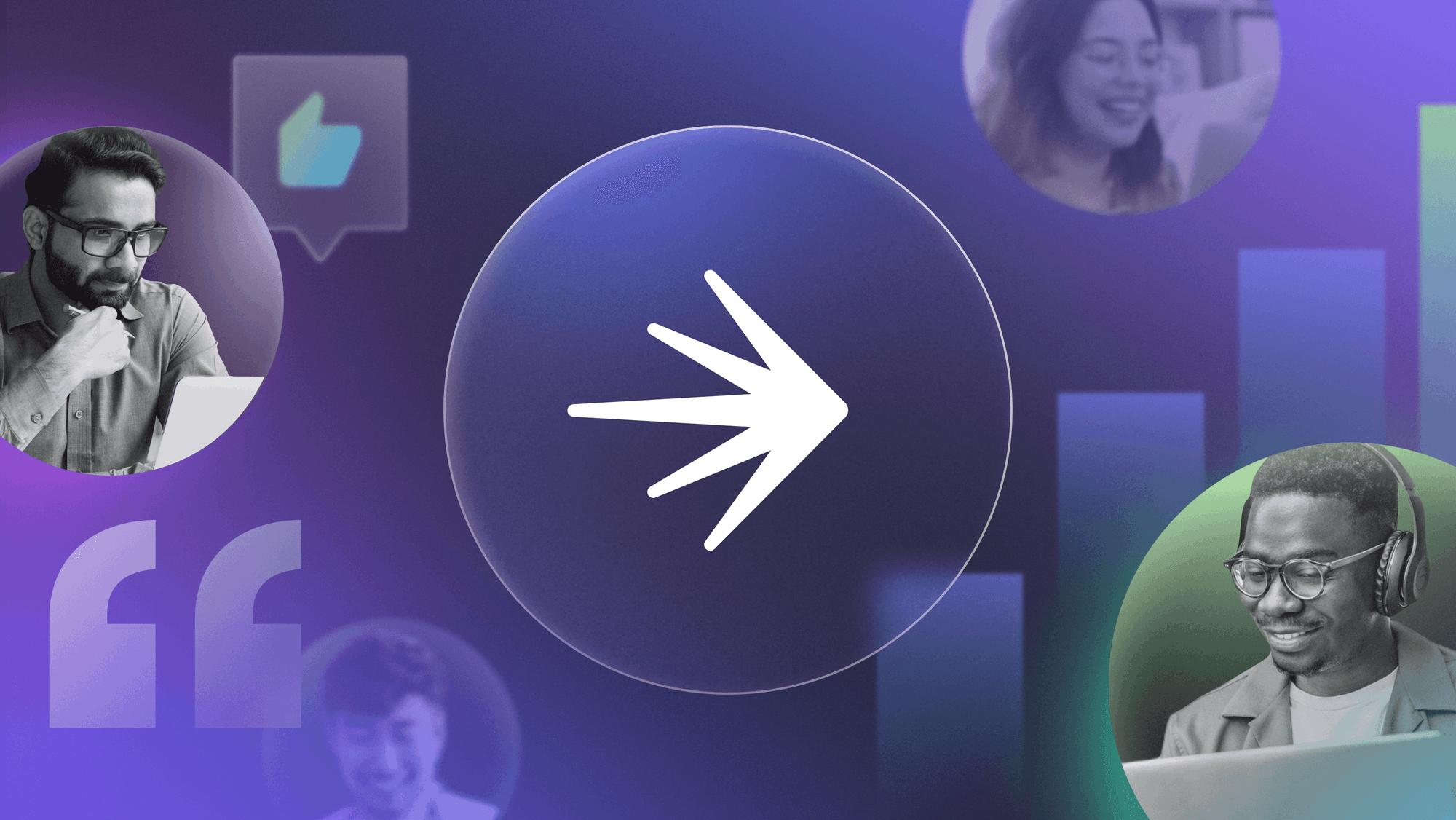
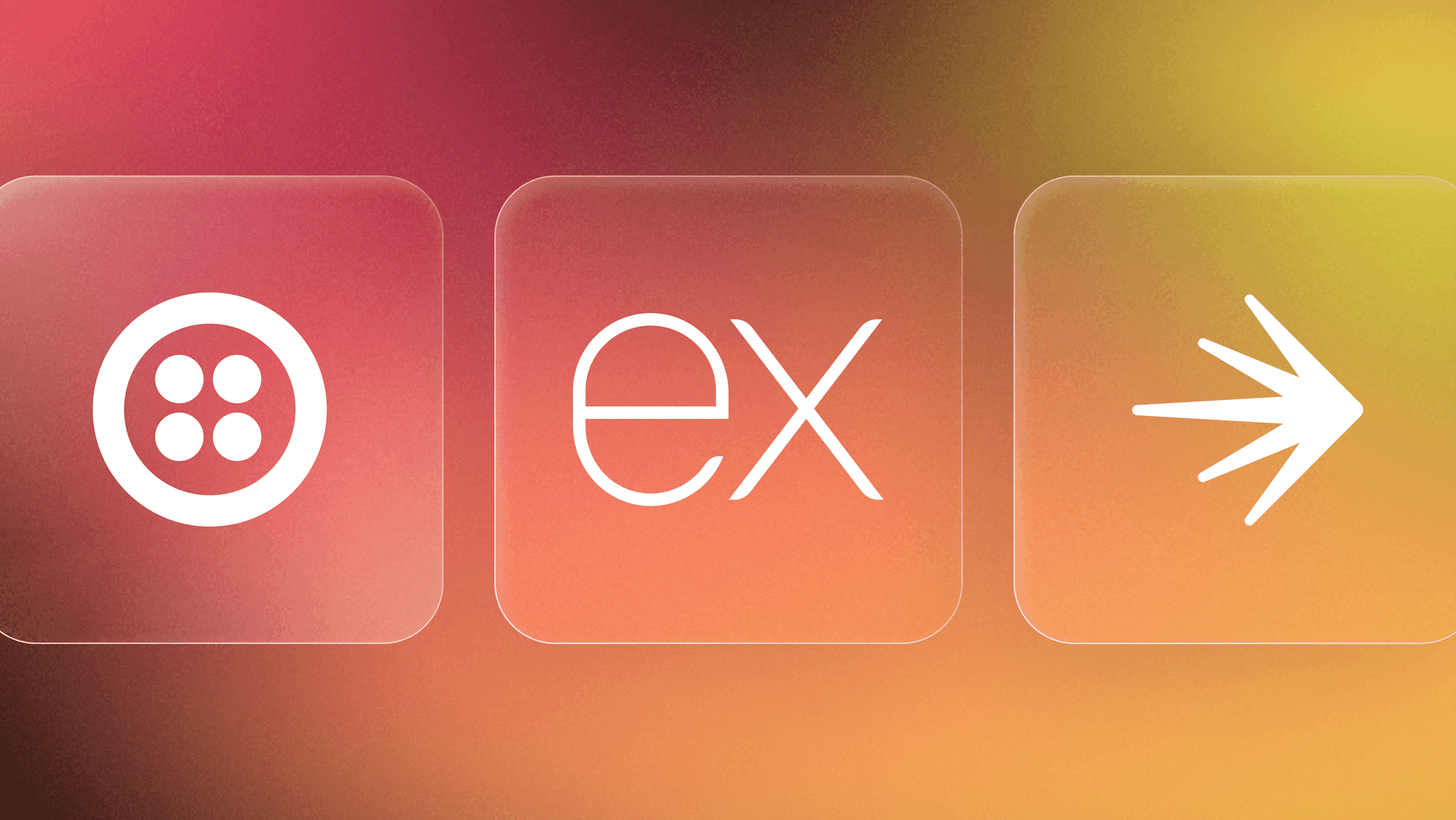


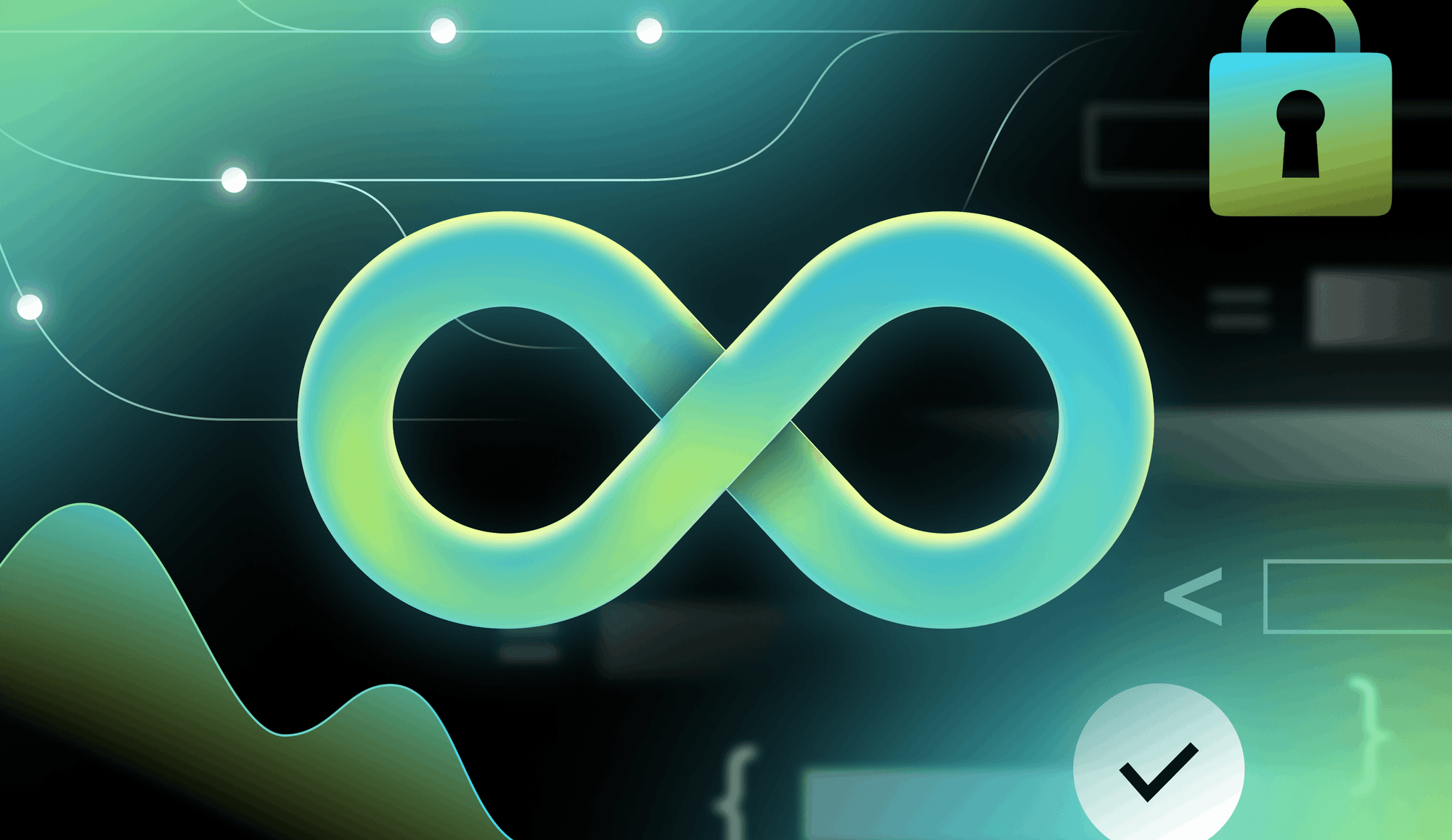
.png)
